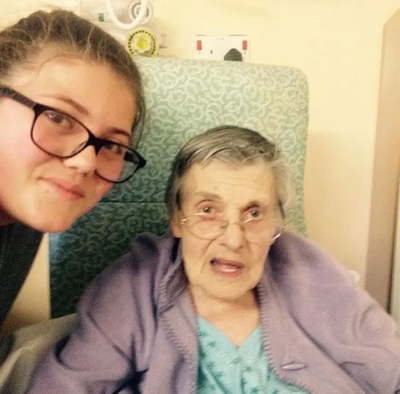The time to act on social care is NOW

For over 20 years successive Governments have failed to to introduce a sustainable system of funding for social care, Cllr Dr Wendy Taylor, LIberal Democrats spokesman, has told a meeting of Newcastle City Council.
The issue of paying for social care has been considered in depth - by the Royal Commission in 1999, the independent King's Fund in 2005 (which the Government subsequently acknowledged), and the "Dilnot Commission" in 2011 - and some important changes have been made, but the key features of the means-test remain broadly unchanged since 1997, while the issue of very high lifetime social care bills remains unresolved.
In 1997 the Labour Party made a manifesto commitment to establish a Royal Commission on long-term care for the elderly The commission was established later that year and reported in March 99. The proposals were:-
─ Recommendation of free personal care (following assessment of needs) funded by general taxation -rejected by the Labour Government
-recommendation of a more generous means-test of £60,000 in 1999 prices (about £95,500 in 2016 prices) in respect of people funding their care relating to living costs and housing-not implemented by the Labour Govt
─ the idea (although not recommended by the Commission) of a four-year cap on paying social care charges-no response from Lab Governmentt
2006 - The Wanless report, commissioned by the independent King's Fund, proposed a move to "partnership" funding for social care; The Lab Government decided to postpone any changes until 2014 or 2015 and made no decision on funding
- 2010, July - the Coalition Government established the Commission on the Funding of Care and Support chaired by Andrew Dilnot, to consider a partnership model between individuals and the state and how people could choose to protect their assets, especially their homes, against the cost of care;
- 2011, July - the Commission published its report, and its recommendations included:
─ a £35,000 lifetime cap for paying for social care for over 65s;;
─ a more generous means-test
- from 2012, July - 2015, February - the Government developed its response, including:
-a £72,000 lifetime cap on social care bills for all adults over 25;
─ a more generous means-test ─ reforms to be introduced in April 2016;
─ universal deferred payment arrangements;
─ a new national level of care and support needs to make care and support more consistent across the country
Liberal Democrats strongly supported these proposals
Unfortunately in 2015, July the new Conservative Government announced the postponement of the introduction of the reforms, including the cap and more generous means-test, until April 2020;
And in May 2017, during the General Election campaign, the Tories proposed their infamous dementia tax, which certainly contributed to their poor performance in the election.
So 20 years on there is still a crisis for social care, which can only be solved by cross party agreement. Which is why Liberal Democrats have been calling for the establishment of a cross-party health and social care convention, bringing together stakeholders from all political parties, patients groups, the public, and professionals from within the health and social care system to carry out a comprehensive review of the longer-term sustainability of the health and social care finances and workforce, and the practicalities of greater integration and to ensure that social care is sustainably funded in the long term. This is supported by former Lib Dem Health minister Norman Lamb, Conservative former health minister Dan Poulter & Labour former shadow care minister Liz Kendall . It is also supported by MPs Sarah Wollaston, Meg Hillier, Clive Betts and Frank Field along with former Health Secretaries Stephen Dorrell and Alan Milburn.
In addition over 70 health and care organisations including Medical Royal Colleges, charities and trade unions are supporting the campaign Now is the time for the Government to start a national conversation involving the public, patients, civic society, healthcare professionals, carers and other experts.
There is a real urgency about this. The time to act is now, and we need the process completed within a clearly defined timescale.
We can't afford another 20 years with no solution.
